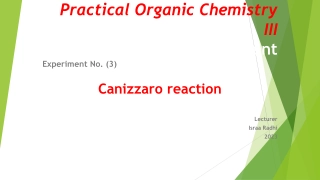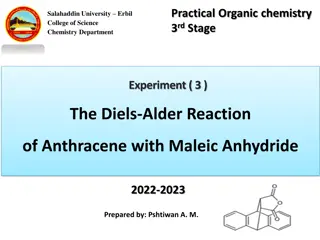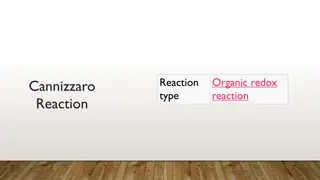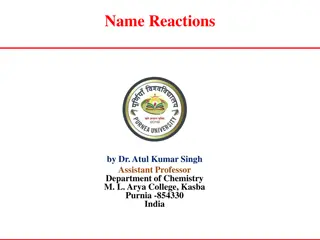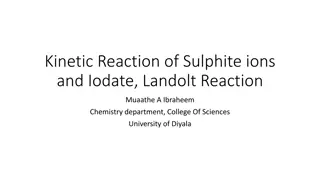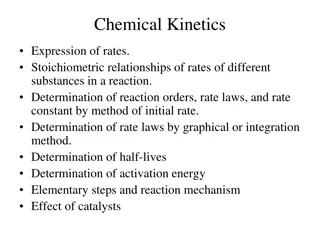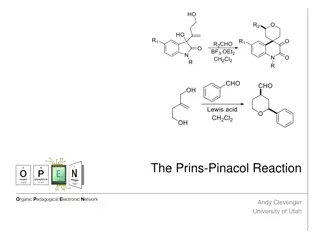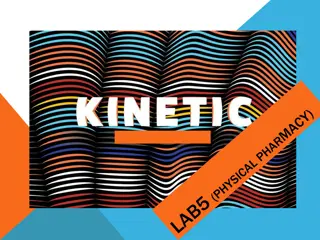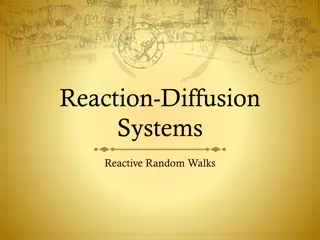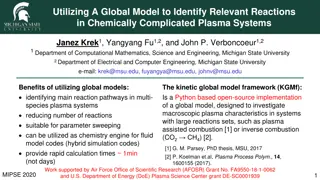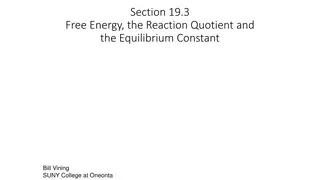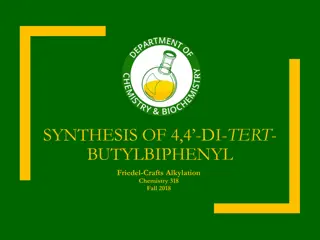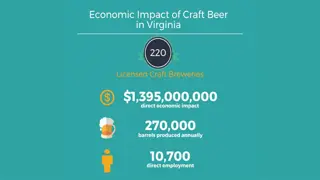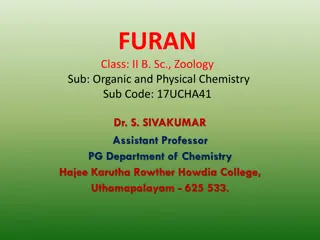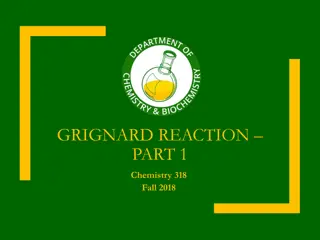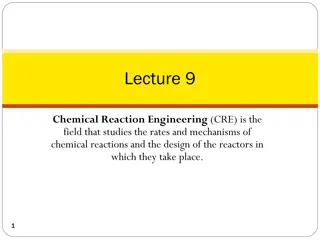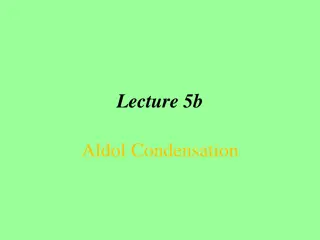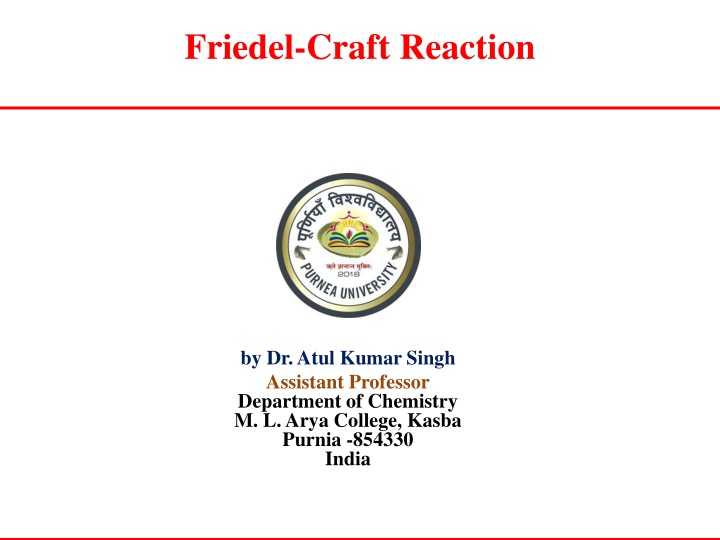
Friedel-Craft Acylation Reaction Mechanism
Explore the Friedel-Craft acylation reaction, its mechanism, and differences from alkylation. Learn how acyl halides react and the significance of acyl carbocation in aromatic ring acylation. Discover why polysubstitution doesn't occur and follow the pathway for synthesizing long primary alkyl benzenes.
Download Presentation

Please find below an Image/Link to download the presentation.
The content on the website is provided AS IS for your information and personal use only. It may not be sold, licensed, or shared on other websites without obtaining consent from the author. If you encounter any issues during the download, it is possible that the publisher has removed the file from their server.
You are allowed to download the files provided on this website for personal or commercial use, subject to the condition that they are used lawfully. All files are the property of their respective owners.
The content on the website is provided AS IS for your information and personal use only. It may not be sold, licensed, or shared on other websites without obtaining consent from the author.
E N D
Presentation Transcript
Friedel-Craft Reaction by Dr. Atul Kumar Singh Assistant Professor Department of Chemistry M. L. Arya College, Kasba Purnia -854330 India
Friedel-Craft Acylation reaction Introduction of an acyl group into an aromatic ring in the presence of lewis acid and acyl halide (some time carboxylic acids, anhydrides and ketenes also used) is known as Friedel-Crafts acylation reaction. Commonly used Lewis acid are AlCl3, AlBr3, BF3, H2SO4, ZnCl2, HF etc
Acyl halides reactivity order Lewis acid enhance the electrophilicity of acyl halide by complexing with the acylhalide. The reactive electrophile, the acyl carbocation (acylium ion) is formed by the removal of the halide by lewis acid catalyst.
The major problem of Friedel-Craft alkylation i.e. rearrangement of the carbocation is not present in Friedel-Craft acylation because acyl carbocation (acylium ion) is formed in Friedel-Craft acylation. acylium ion is stabilized by resonance structure hence rearrangement is never found in acylium ion.
Polysubstitution not occurs in Friedal-craft acylation because RCO is a deactivating group. The long primary alkyl benzene can be synthesized by Friedal-craft acylation followed by reduction, which we could not be made by Friedal- craft alkylation due to rearrangement.

